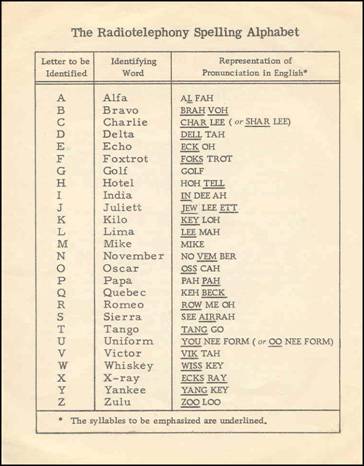Yes, I know – things have been quiet here on the blog for some time now. This is what happens when life gets even busier than usual. Rather than provide a VERY long list of all that’s been going on, let me jump right to what I am doing at this very moment: boning up on VHF radio know-how (well, technically, taking a short break from boning up on VHF radio know-how in order to write this post).

If you’ve been following the blog for a while you will know I’m bound and determined to do some serious sailing in the foreseeable future. And when I say sailing, I don’t mean a dingy on the reservoir, I mean a cruising sailboat circumnavigating the planet (hey, we all need dreams, right?). It turns out that more and more places in the world are adopting actual standards for skippers and crew of vessels heading off into the wild blue yonder. This, of course, is a good thing. I remember a couple of hairy incidents maneuvering our Columbia 24 in and out of tight Florida marinas back when I knew pretty much nothing about sailing. Back then (we are talking the 80’s) there were no standards – you took the helm and took off. And, yes, if this sounds a tad dangerous and somewhat foolish, it was not the best way to get your proverbial sailing feet wet.

Fabio on his maiden voyage – Finlayson Arm – Progress is being made on the sailing front. At least Fabio has now been out on the water… There’s another blog post in the works to fill you in on the details of our sailing lesson.
With this in mind (and very much aware of how much I still do not know about sailing), I’ve been getting ready to get my ICC (International Certificate of Competency). This isn’t a straightforward online test like the Pleasure Craft Operator Card handed out by the Canadian Power and Sail Squadrons – CPS (though, said card is now mandatory if you wish to be at the helm of a boat in this country). [Need your PCOC? Here’s the link: PCOC at CPS)]
The ICC actually requires you to be able to handle a boat under sail, dock and undock, and prove you know what you are doing in terms of basic navigation. And, you need to have your ROC(M) – Restricted Operator’s Certificate (Marine) – basically a license to operate a VHF radio. I’m working my way through self-study material for VHF operators provided by CPS (beyond boring, someone should update the course material!) so I know how to send out a Mayday call (heaven forbid!), should that ever be necessary.
In the course of learning about VHF radios I discovered that the new generation of radios have built-in GPS systems that allow users to push a button and fire off a distress signal that alerts the coast guard to your exact location. These Digital Selective Calling (DSC) – Capable radios may make the rest of what I’m learning about sending out an actual message quite obsolete.
I’ve also learned that in order to use this feature I will need to get something called an MMSI (Marine Mobile Service Identity) which is issued from the government of Canada and which is unique to your boat, not your radio. (If you need to apply for one, here’s the link.)
While I was looking around for how much one of these radios is going to cost (Christmas is coming, after all), I stumbled on this presentation posted online by Boat US which, if you are now as obsessed with VHF radios as I am, is definitely worth checking out: BOAT US DSC Radio Presentation

These days you don’t need to know Morse Code to get your VHF license. Whew!
BRAVO-YANKEE-ECHO for now!








Best of luck to you.
LikeLike